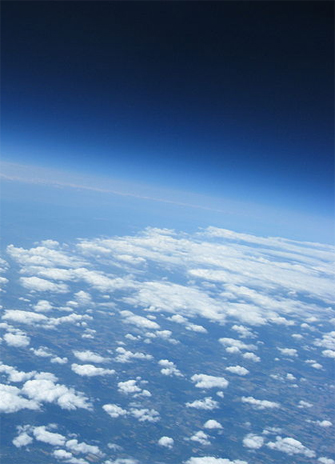Three research teams from York University are among a cohort from seven Canadian universities to receive funding from the Canadian Space Agency (CSA) to develop 10 projects in space science and technology. “The funding provided by Canadian Space Agency will support York’s researchers in developing their innovative research programs and will help train graduate students to investigate technologies related to satellites and environmental monitoring,” said Robert Haché, York’s vice-president research & innovation. Lassonde School of Engineering Professors Jinjun Shan, Tom McElroy and Regina Lee will receive a total of $579,995 in the form of three grants from the CSA. The two- and three-year grants will offer opportunities for graduate students to acquire hands-on training in designing, building, testing – and in some cases – flying scientific instruments and technologies on high-altitude balloons, sounding rockets or nanosatellites and analyzing the resulting data. The projects will help students to investigate innovative space technologies and give them the training to keep Canada at the forefront of space research.

Shan, a professor of space science, will $249,995 over three years for his project “Observations of Earth’s surface and aerosol with a balloon‐borne imaging Fabry‐Perot spectrometer”. The project will develop a critical mass of engineers, atmospheric scientists and students through the modification and completion of a minutre 02 A-band Fabry-Perot 2-D imaging spectrometer, which has been developed by MPB Communications Inc. The project will provide the detailed design, modification, fabrication and validation of this F‐P spectrometer for atmospheric science, air quality and meteorology applications. Engineers, scientists and students will work closely on mechanical, electrical and optical aspects to complete its development. The instrument will be tested on a balloon flight in 2016‐2017. The measurements of the spectrometer will be analyzed.

McElroy, the Natural Sciences and Engineering Research Council of Canada (NSERC) Industrial Research Chair at Lassonde, will receive $250, 000 over three years for his project “A Balloon-based Demonstrator for the PHEOS-WCA1 IFTS2”. The Canadian government is considering the development of a polar, highly elliptical satellite to provide communications and weather information in the polar regions. A potential augmentation of that satellite complement is the addition of a science package that would provide information about the composition of the atmosphere, temperature and pressure profile information, and measurements related to air quality in the polar region. In addition, measurements of carbon dioxide and methane, important greenhouse gases, would also be made. McElroy’s project will develop and increase the technical readiness level of the instruments that would provide these measurements on the Polar Communication and Weather satellite.

Lee, a professor of space science, will receive $80, 000 in funding over two years for her project titled, “CubeSat Attitude Control System (ACS) Design for the SIGMA Mission”. Lee’s project will see a team from York University participating in the QB50 CubeSat mission as well as the SIGMA mission as part of the Korean CubeSat program. The project will develop an efficient attitude control system (ACS) for the SIGMA mission. The research team will also play a significant role in mission operations providing one of the key operation centres at the York University. Main engineering research will be in development of attitude determination and control algorithm design using the commercial grade hardware for CubeSat-class nanosatellites. This investment is aligned with the “Inspiring Canadians” principle, outlined in Canada’s Space Policy Framework released in February.
The framework focuses on working with industry, universities and colleges to recruit, support, and retain highly qualified personnel. The funding is the result of the Flights for the Advancement of Science and Technology (FAST) Announcement of Opportunity published on the CSA’s website on November 8, 2013.
The total funding awarded was $2 million. To learn more about these projects and the other projects funded, visit the CSA website.


